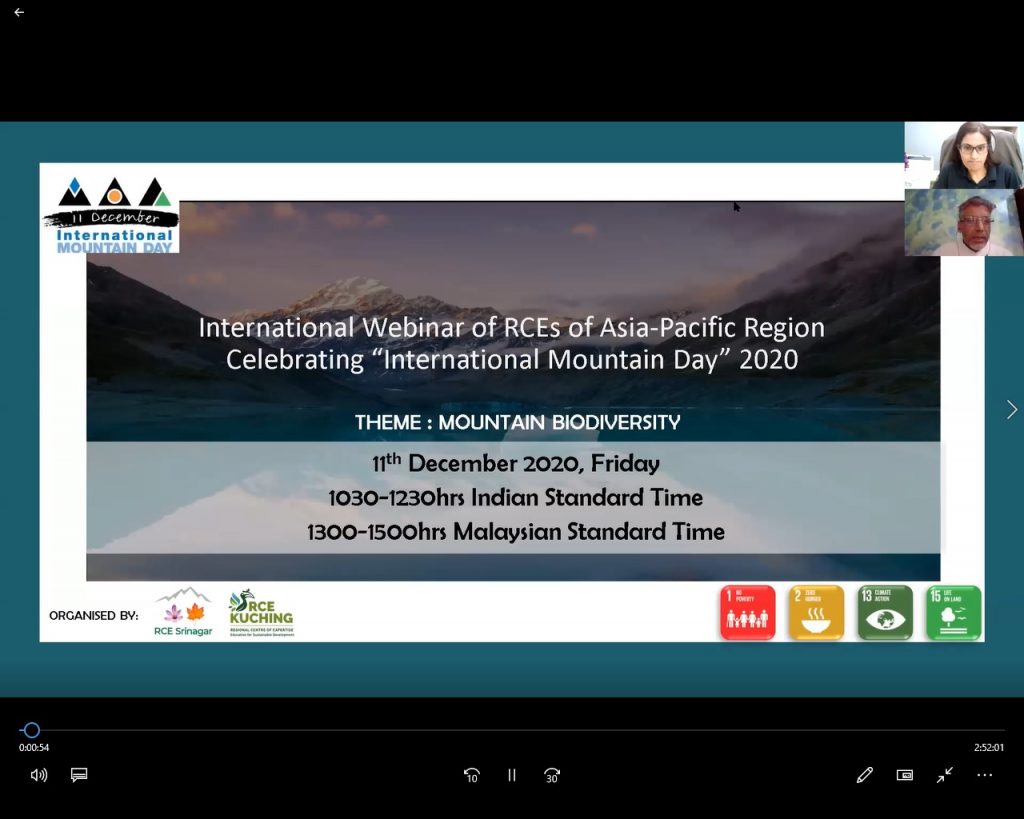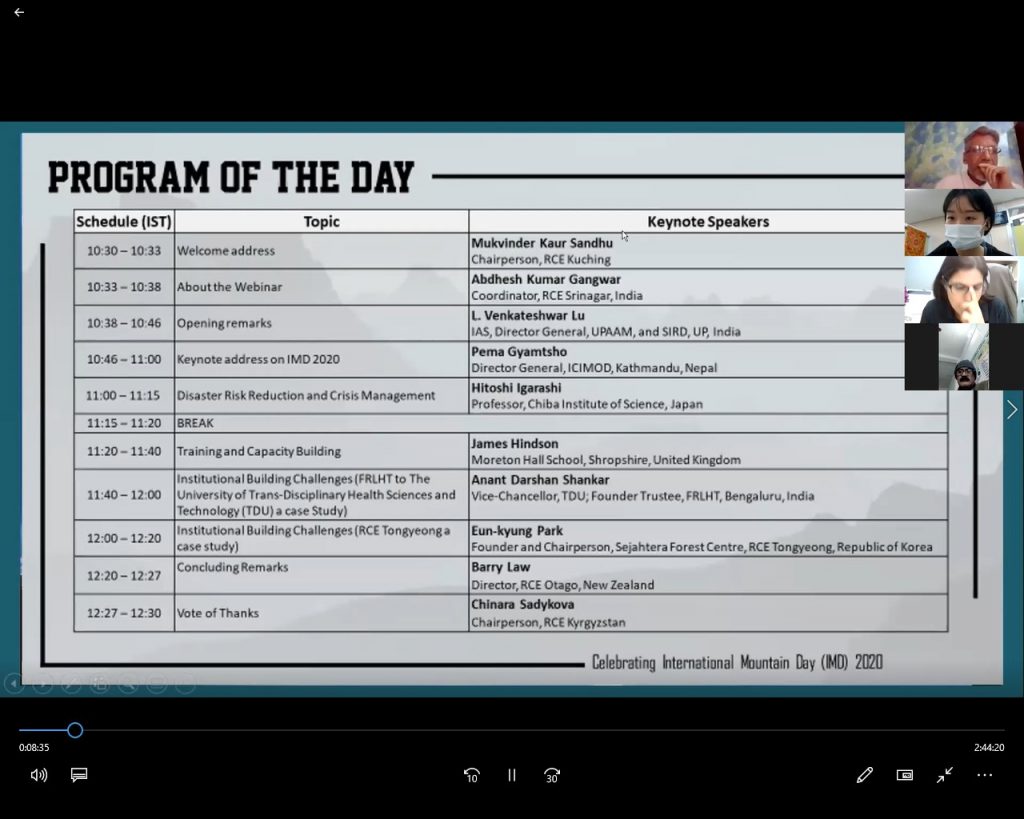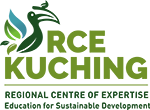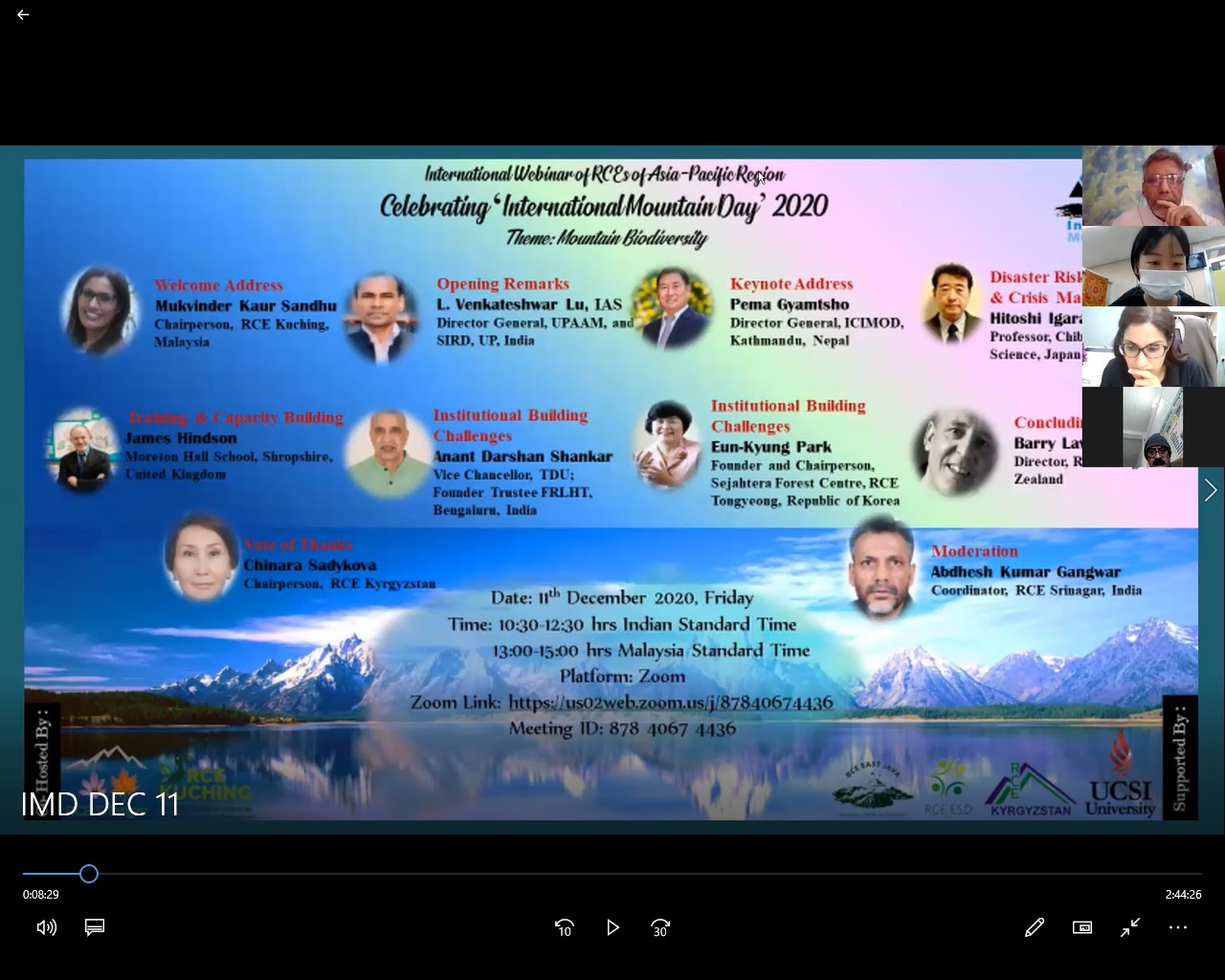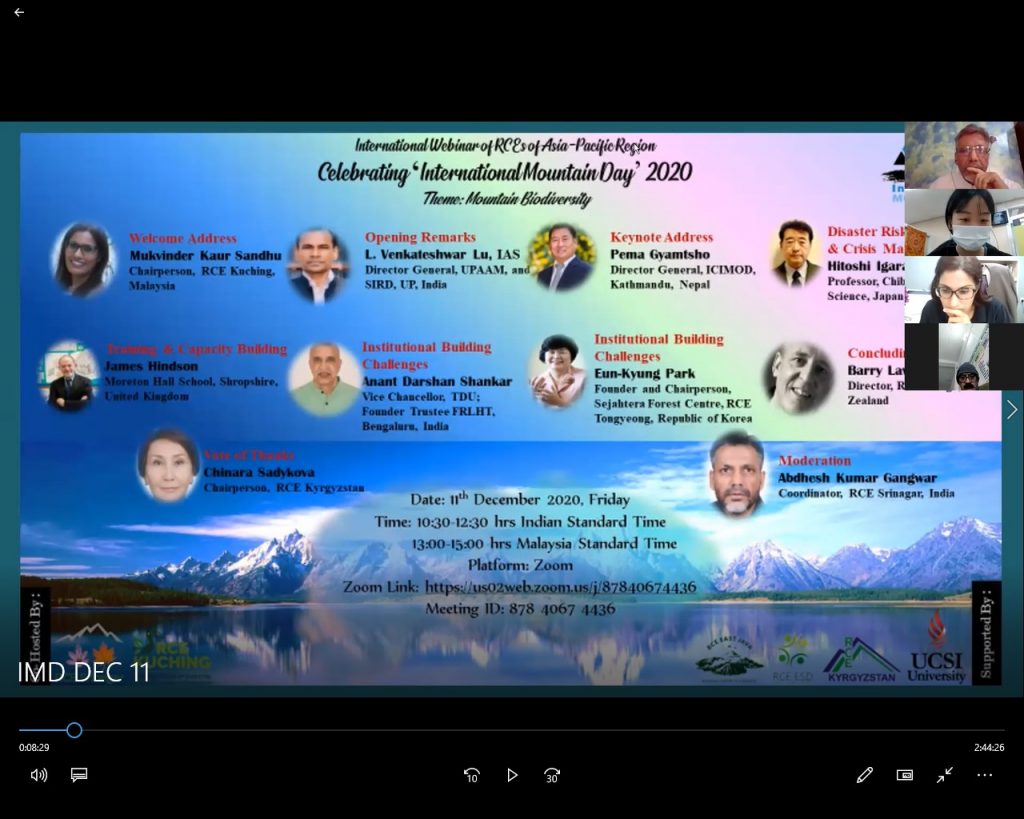
International Mountain Day
11 Dec 2020
RCE Srinagar and RCE Kuching organised an International webinar for the Asia Pacific Regional Centres of Expertise (RCEs) via ZOOM on International Mountain Day 2020, 11 Dec 2020. RCEs have been established all over the world as part of an initiative by the United Nations University Institute for the Advanced Study of Sustainability in Japan to contribute to create a Global Learning Space for sustainable development.
The aim of the webinar was to raise awareness and understanding of the importance of mountains and the people who rely on them for their livelihoods. The webinar also addressed aspects such as institution building, training and capacity building, which were highlighted in the Intergovernmental Science Policy Platform on Biodiversity and Ecosystem Services (IPBES) Report to be instrumental for strengthening productive actions by the RCE community.
We heard from a panel of influential and passionate keynote speakers from the Asia Pacific Region. First Ms. Mukvinder Kaur Sandhu, Chairperson, RCE Kuching, and Chief Operating Officer, UCSI University, Sarawak Campus, Malaysia welcomed us all and reminded us about the importance of mountains, their rich biodiversity, and the threats they face.
Dr. Abdhesh Kumar Gangwar, Coordinator & Focal Point, RCE Srinagar, India, the moderator for this webinar then continued speaking about the importance of RCEs. He discussed that there are 58 RCEs in the Asia Pacific Region, and he highlighted previous Asia Pacific Region RCE webinars which were held in 2020. Even though Covid-19 has proven to be a challenge for all of us to continue with our initiatives on the ground, we have managed to continue and to work on connecting via online webinars to share insights, build capacity, and reflect on how we can revitalise our work in 2021.
Opening remarks were then given by Mr. L. Venkateshwar Lu, Indian Administrative Service, Director General, Uttar Pradesh (UP) Academy of Administration & Management, and State Institute of Rural Development, UP, India. He stressed the importance of mountain resources and the balance of the ecosystems that are to be respected as part of God’s creation. He mentioned that humans have done more damage to the natural environment in the last 50-100 years than was done throughout the history of the planet before that. We cannot continue in this way. We must respect nature with sincerity and commitment.
Our first keynote speaker, Dr. Pema Gyamtsho, Director General, International Centre for Integrated Mountain Development (ICIMOD), Kathmandu, Nepal, brought the importance of mountains to the forefront, showing us that around 22% of the earth’s surface is covered with mountains, and that 13% of the world’s population live on mountains. Furthermore, mountain resources provide goods and services for millions of people, and they act as havens for indigenous cultural preservation and spiritual enlightenment. In fact, mountains are biodiversity hotspots and critical eco-regions for the enduring sustainability of Mother Earth. He concluded with a call for action to establish more conservation alliances and collaborative initiatives to protect the mountains of the earth.
Mr. Hitoshi Igarashi, Faculty of Risk and Crisis Management, Chiba Institute of Science, Japan, our second keynote speaker, gave a pre-recorded talk about the importance of mountains from the Japanese perspective. He mentioned that a large portion of Japan is mountainous, and the Japanese culture is entwined with the mountains to the extent that the people of Japan respect their mountains and give homage to the Gods of the mountains. They also experience disasters in mountainous regions, and as a result, they prioritise the preservation of their mountains. They use a holistic approach to preserve the mountain environment called Disaster Smart Living. Their approach involves combining human wisdom, science and technology, and environmentally sound lifestyles.
Our third keynote speaker, Dr. James Hindson, Moreton Hall School, Shropshire, Formerly Director, International Programmes, Field Studies Council, United Kingdom, discussed training and capacity building. He mentioned how important it is for us to reflect on people’s behaviour. An example of inconsistency in people’s behaviour is that we want to see the natural environment protected and preserved, yet we also want to engage in widespread development which in turn destroys the natural environment. So, the main issue we are facing is how we can get people to change. To do this we need to know how people think. Ultimately, change involves going through a process that includes dissatisfaction, vision, first steps and resistance.
Prof. Ananat Darshan Shankar, Vice-Chancellor, TDU, Member, Board of Governors, Founder Trustee, Foundation for Revitalization of Local Health Traditions (FRLHT), Bengaluru, India, our fourth keynote speaker, shared with us about a case study on Transdisciplinary Health Sciences and Technology regarding institutional building challenges. He emphasised that It is vital for institutions to merge various cultures and specialities in order to have innovation and adaptability to change. As a living, social network of individuals, an institution needs to have a healthy ownership of its vision, mission, and goals. Leadership development, accountability, excellence, fair play, helpfulness, and the culture of trust and management are also very important.
Our final keynote speaker, Dr. (Ms.) Eun-kyung Park, Founder and Chairperson, Sejahtera Forest Centre, RCE Tongyeong, Tongyeong ESD Council, Republic of Korea, showed us how RCE Tongyeong built their institution. She explained how Tongyeong focuses on nature, history, as well as arts and culture. This RCE developed into an institution through some intentional actions:
- Collaborations between the Tongyeong City government and the RCE.
- Close links between university research on ESD and the RCE
- An awareness-raising process
- Receiving financing from the Ministry of Environment at the National and Regional levels
Dr. Barry Law, Director, RCE Otago, New Zealand concluded the webinar with an emphasis on mountain environments, seeing how important they are for the stability of other ecosystems and indigenous perspectives. He also noted that it would be advantageous to use the SDGs as part of the process of aligning values, behaviours, habits, and smart living to economic development. He also mentioned that building resilience and social sustainability are so important for us as we move forward into the post-covid19 environment.
Our webinar concluded with Dr. Chinara Sadykova, Chairperson, RCE Kyrgyzstan thanking everyone for joining. And she gave a special thanks to all the speakers, and she wished all a Happy New Year 2021.
